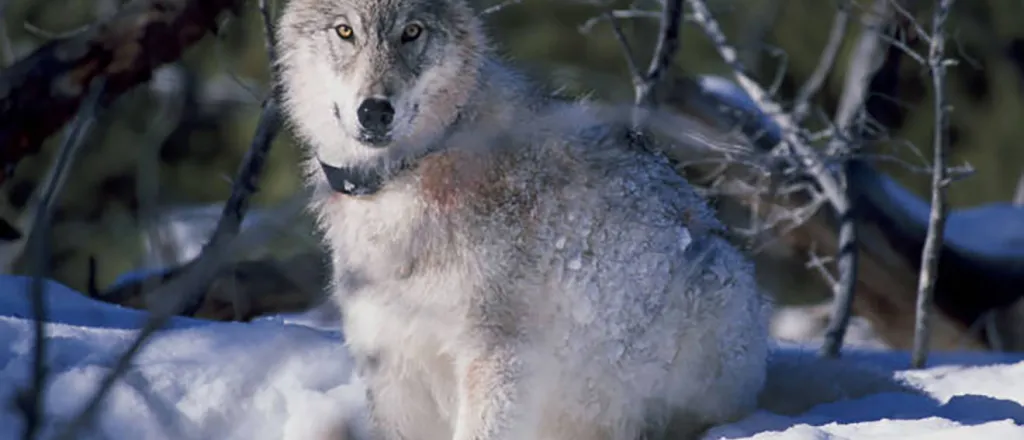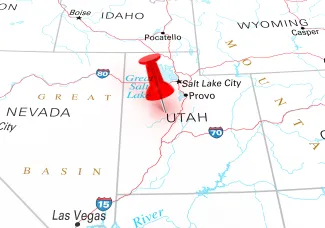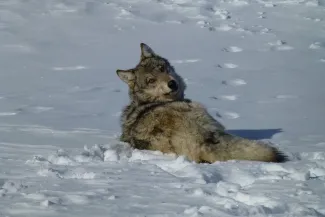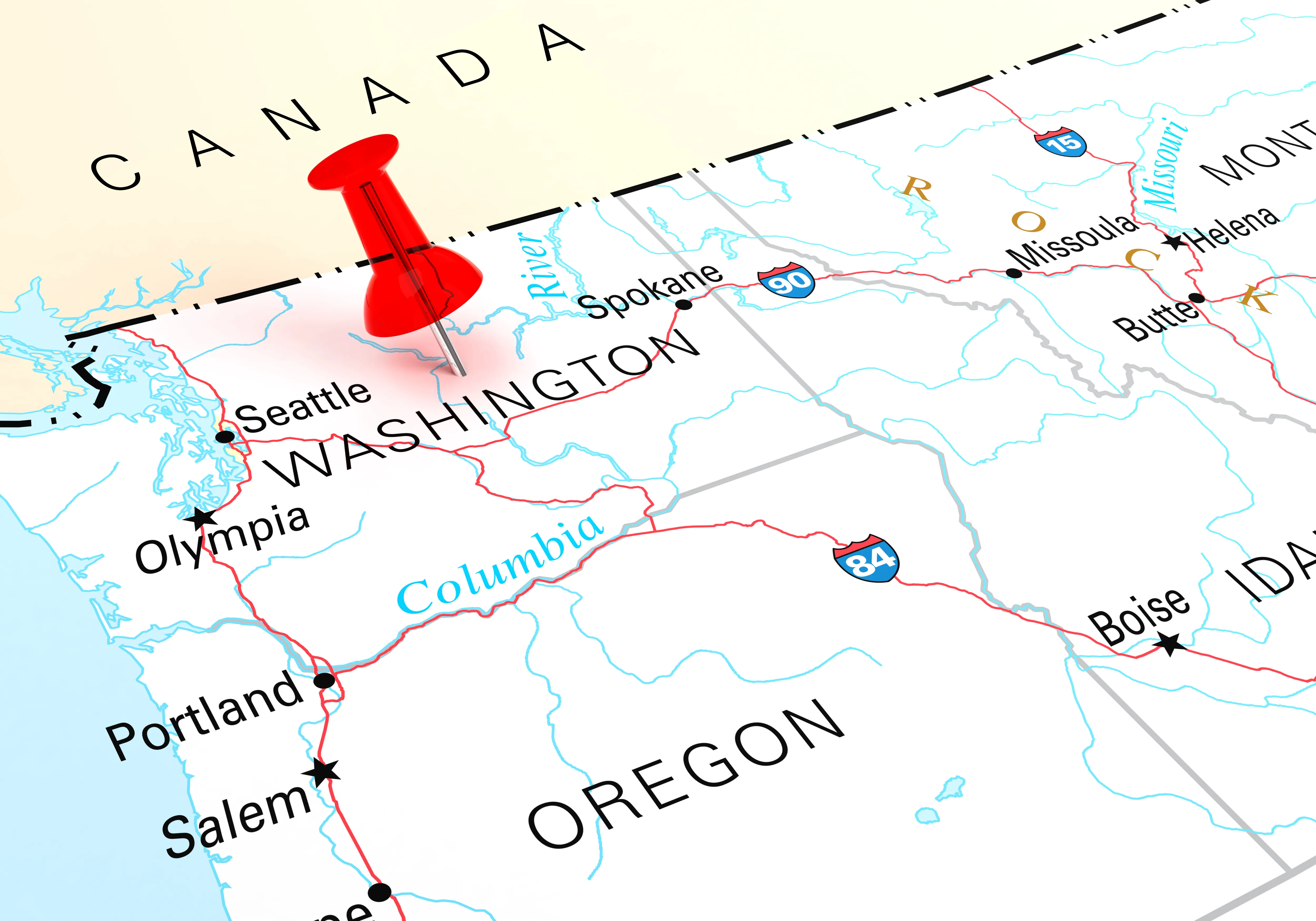
After millions in taxpayer money spent on anti-wolf lobbying, lawmaker wants more oversight
This story originally appeared in the Utah News Dispatch.
(Colorado Newsline) Utah lawmakers are once again considering funding efforts to scale back the protections granted to wolves under the Federal Endangered Species Act, with the group Hunter Nation requesting an additional $500,000 during an appropriations committee Thursday.
Confirmed wolf sightings are rare in Utah — since 1995, the Utah Division of Wildlife says there have been between 15 to 20, most recently a gray wolf that killed a rancher’s calf in Rich County in 2020.
But with the recent reintroduction of 10 wolves to the Western Slope of Colorado, experts say it’s only a matter of time before they creep into the eastern part of the state.

That includes Don Peay, a hunting activist and founder of the group Sportsmen for Fish and Wildlife, who presented Thursday to the Natural Resources, Agriculture, and Environmental Quality Appropriations Subcommittee.
Peay, who was representing the group Hunter Nation, asked for $500,000 that he said will help keep wolves out of Utah until the state “is granted full management authority over wolf populations.” According to the request, $50,000 will go toward “out-of-state travel” and the remaining $450,000 will be used for “personnel services.” Records show the group received $500,000 from lawmakers last year as well.
Peay presented alongside state Rep. Derrin Owens, R-Fountain Green, who told Utah News Dispatch on Friday the funding will go toward education and lobbying efforts so Utah can have “representation to get congressional staffers or congressional leaders in D.C.”
“This is an effort of education, having a seat at the table and representing the state, whatever that looks like for conservation groups, hunters, all stakeholders,” Owens said.
But at least one representative, Paradise Republican Casey Snider, expressed concern over the state “continuing to throw money down this hole.”

USFWS - public domain
Utah has dished out millions since 2012 to hunting groups, most of it going to the nonprofit Big Game Forever, which has received $5.1 million in state funds during that time frame, according to state records. Peay co-founded the group.
Peay said they’re “just waiting for that silver bullet,” which he believes comes in the form of a bill in Congress that would federally delist wolves — sponsored by Colorado Republican Rep. Lauren Boebert, the “Trust the Science Act” passed the U.S. House in November.
Owens said the fact that Boebert’s bill is gaining momentum is evidence that the money Utah has spent on anti-wolf lobbying efforts is well spent.
“That bill came from this work. It didn’t grow out of its own self. That came from these efforts,” he said Friday.
Snider, who clarified he’s behind the delisting effort, is not “supportive of this blank check … with not much accountability.”
Peay told the committee he wasn’t given a “nickel” of state money for his anti-wolf efforts until 2016 — Snider cited the millions appropriated to Big Game Forever.
Peay said he didn’t see that money until 2016, and Snider was skeptical, resulting in a tense moment where committee chair Sen. Scott Sandall, R-Tremonton, told them, “We’re here to hear a presentation not to debate.”
Owens said he supports more oversight. “Every public tax dollar should be accounted for,” he said. But he doesn’t necessarily have an issue with how the program is currently being managed.
Wolves are delisted — meaning the state can manage populations rather than the federal government — in just a small portion of northeast Utah east of Interstate 15 and north of Interstate 80. Wolves can be killed in that area if they pose a threat to livestock, pets or people.
In the rest of the state, wolves are protected under the Endangered Species Act.
With only 10 wolves reintroduced in Colorado, Peay said Utah has time. And if a Colorado wolf with a radio collar crosses the border, wildlife officials in Utah will be notified, he said.
“They’re not just going to eat themselves out of house and home and run into Utah. They’re going to sit in Colorado,” Peay said, telling lawmakers it could take between three to seven years “for that wolf pack to exhaust their food supply and come our way.”
Utah News Dispatch is part of States Newsroom, a nonprofit news network supported by grants and a coalition of donors as a 501c(3) public charity. Utah News Dispatch maintains editorial independence. Contact Editor McKenzie Romero for questions: info@utahnewsdispatch.com. Follow Utah News Dispatch on Facebook and Twitter.
Colorado Newsline is part of States Newsroom, a network of news bureaus supported by grants and a coalition of donors as a 501c(3) public charity. Colorado Newsline maintains editorial independence. Contact Editor Quentin Young for questions: info@coloradonewsline.com. Follow Colorado Newsline on Facebook and Twitter.
















